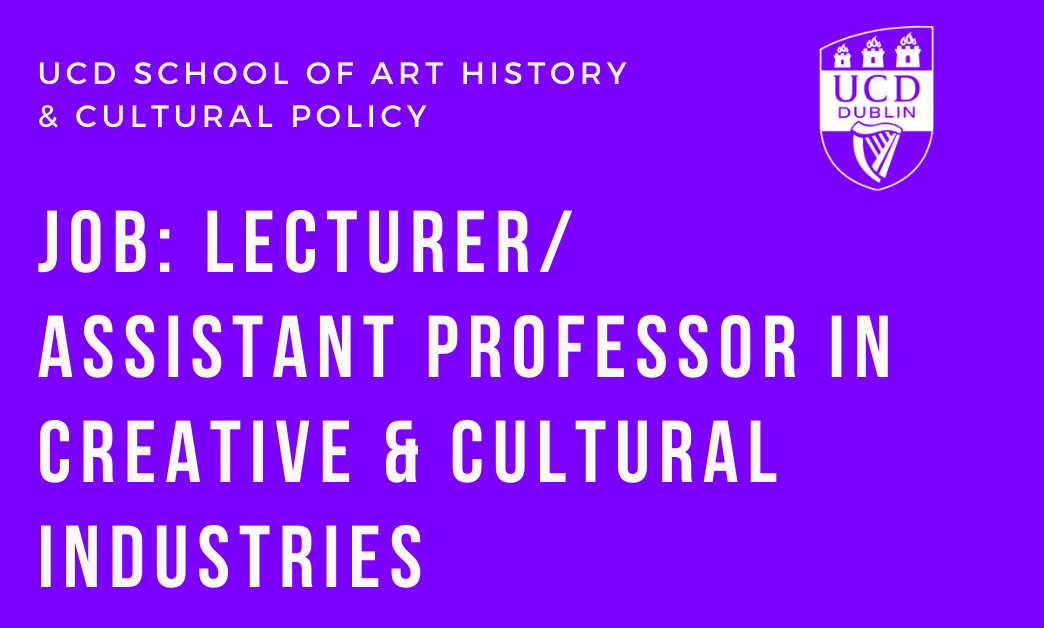
ISTR Conference 2025: The End(s) of Empire: Place, Politics, Performance
Pace Borza
Published - June 20, 2025
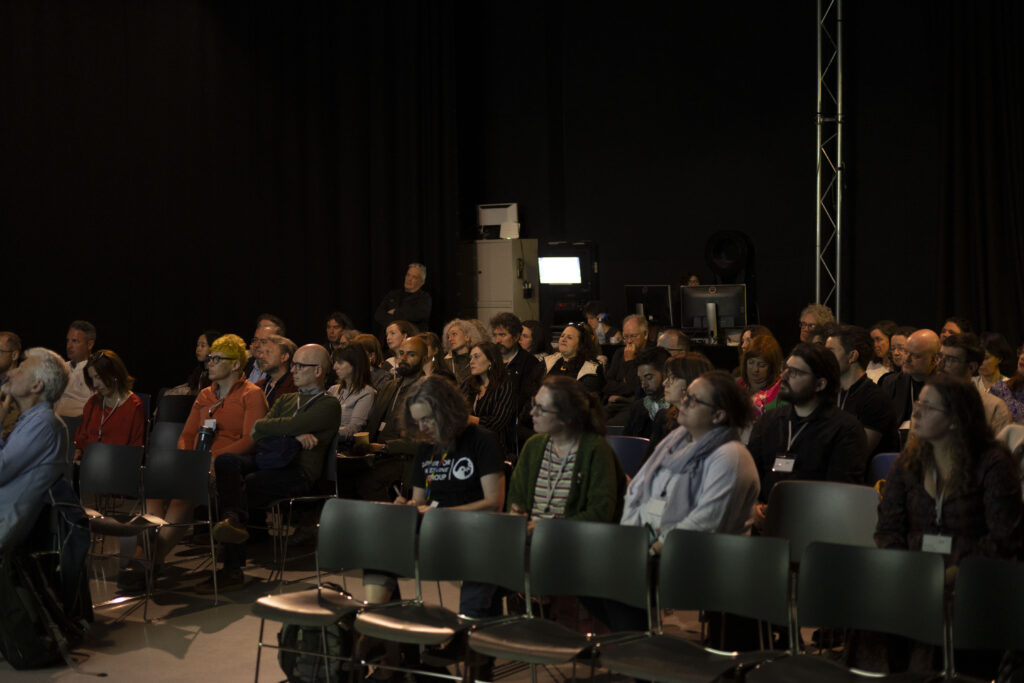

Creative Futures Academy, through our Public Engagement Fund, in association with Film EU European University were delighted to host the Irish Society for Theatre Research (ISTR) annual conference 2025 in IADT Dún Laoghaire on Thursday 5 and Friday 6 June.
This event, entitled ‘The End(s) of Empire: Place, Politics, Performance, included a wide range of international and interdisciplinary panels addressing the creative and performing arts through the lens of (de)coloniality.
The opening remarks of Tina Kinsella (Head of Research at IADT) noted that the location of Dún Laoghaire and Carriglea Park were particularly fitting locations for the conference topic, as both are “contested sites that echo with the ghosts of history, which continue to stick to and press upon the present” with the town being renamed Kingston in honour of King George IV’s visit in 1821 and Carriglea Park having been part of a Christian Brothers-run industrial school between 1984 and 1954.
The call to “consider and reconsider the role that the creative and performing arts have played in negotiating the end(s) of empire or their continuation” reverberated productively across the two-day conference, with panel themes ranging from challenging colonial legacies to negotiating neoliberalism and government policy, as well as to artistic forms of resistance, musical mythologies, mediatization, adaptation, and (re)imagining place.
Among the highlights of The End(s) of Empire were both keynotes, presented by Elaine Sisson (IADT) and Siân Adiseshiah (Loughborough University). Sisson’s keynote “Costume as Dissent: Ireland, Modernity and the Politics of Becoming” presented an alternative secular historiography of post-Independence Ireland by highlighting the design in adaptations of Sheridan Le Fanu’s Carmilla at the Gate Theatre, Dublin in the 1930s, and the prevalence of fancy-dress parties and contests that exhibited increasingly cosmopolitan and futurist sensibilities within Irish society during the period of the Irish Free State.
Adiseshiah’s thought-provoking and wide-ranging keynote on “Staging Utopian Subjects” considered the
works of contemporary playwrights Debbie Tucker Green and Mojisola Adebayo, and their comparative approaches to “utopia”: the former invites us to feel absence as preferable to the status quo, while the latter projects towards a horizon of felt possibility.
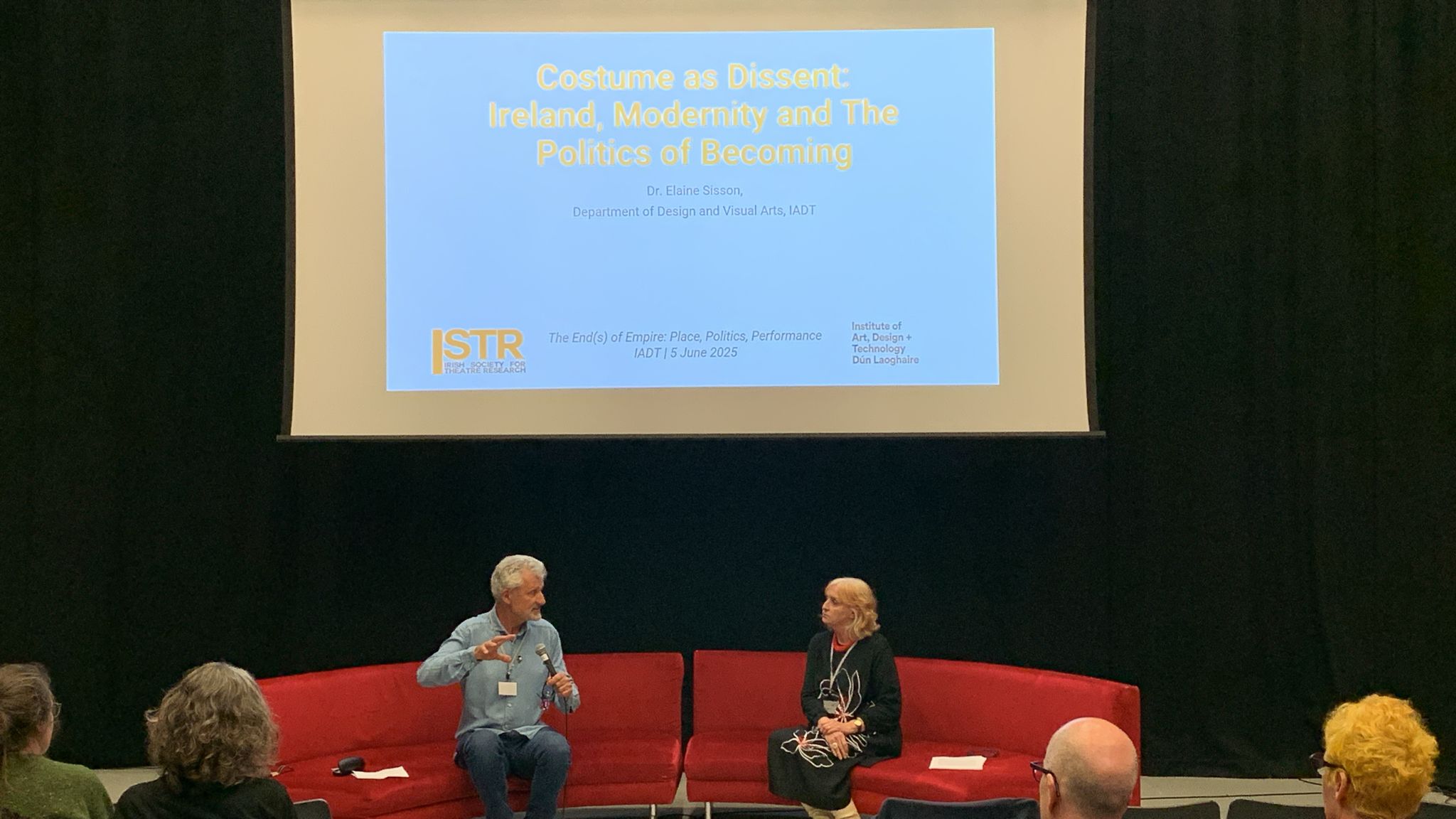
At the wine reception, on the evening of Thursday the 5th of June, the conference recognised the work and dedication of Siobhán Burke and Jane Daly, co-founding directors of Irish Theatre Institute, with an Outstanding Contribution Award. Barry Houlihan presented this special award on behalf of the ISTR Executive Committee, in recognition of the vital contributions of Burke and Daly – for example by leading the Irish Playography (established in 2002), an ongoing initiative documenting new Irish plays that have premiered in Ireland since 1904.
Also at Thursday’s wine reception, five books were launched: Beautiful doom: The Work of Dennis Kelly on Stage and Screen (2025), edited by Jacqueline Bolton and Nicholas Holden, launched by Steven Benedict; Yaqoub Bou Aynaya’s Redefining Irishness in a Globalized World: National Identity and European Integration (2024), launched by Kevin Wallace; Sarah Hoover’s Strategies of Reflective-Affective Dramaturgy in Interactive Theatre: Larping Audiences In (2024), launched by Jeremiah Ambrose; Claire Keogh’s #WakingTheFeminists and the Data-Driven Revolution in Irish Theatre (2025), launched by Emer O’Toole;
Contemporary Irish Theatre: Histories and Theories (2024) by Charlotte McIvor and Ian Walsh, launched by Brian Singleton.
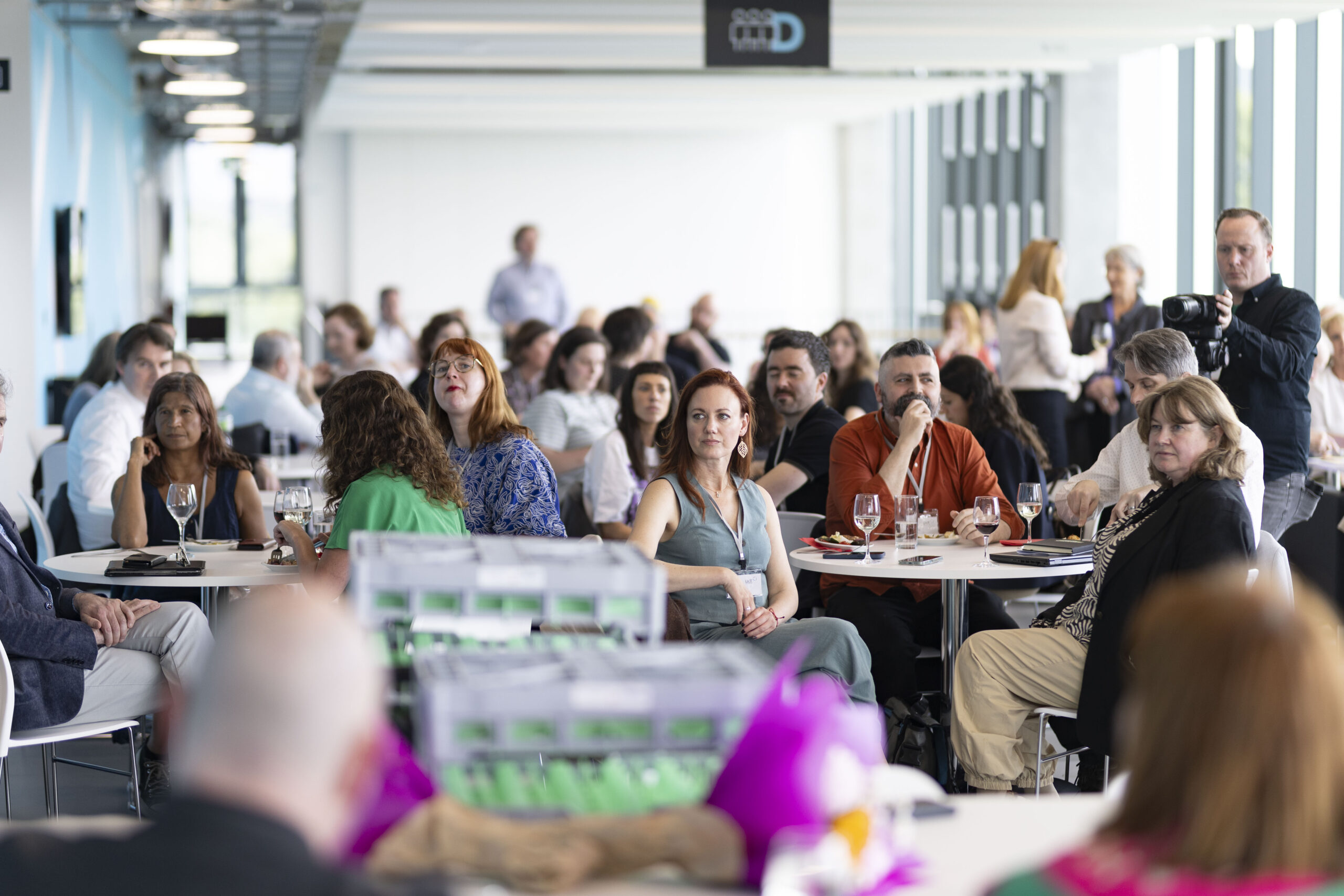
On Friday the 6th, Mike Finneran (MIC) and Siobhán O’Gorman (IADT) presented the annual ISTR New Scholars Prize (NSP) 2025 to winner Grace Joseph, Research Associate at University of Sheffield, and also recognised the work of Nora Grimes, PhD candidate at Trinity College Dublin, who was presented with a certificate as the first runner-up for the 2025 prize. The adjudication panel included Finneran, Gorman and Guest Adjudicator David Cregan (Villanova University).
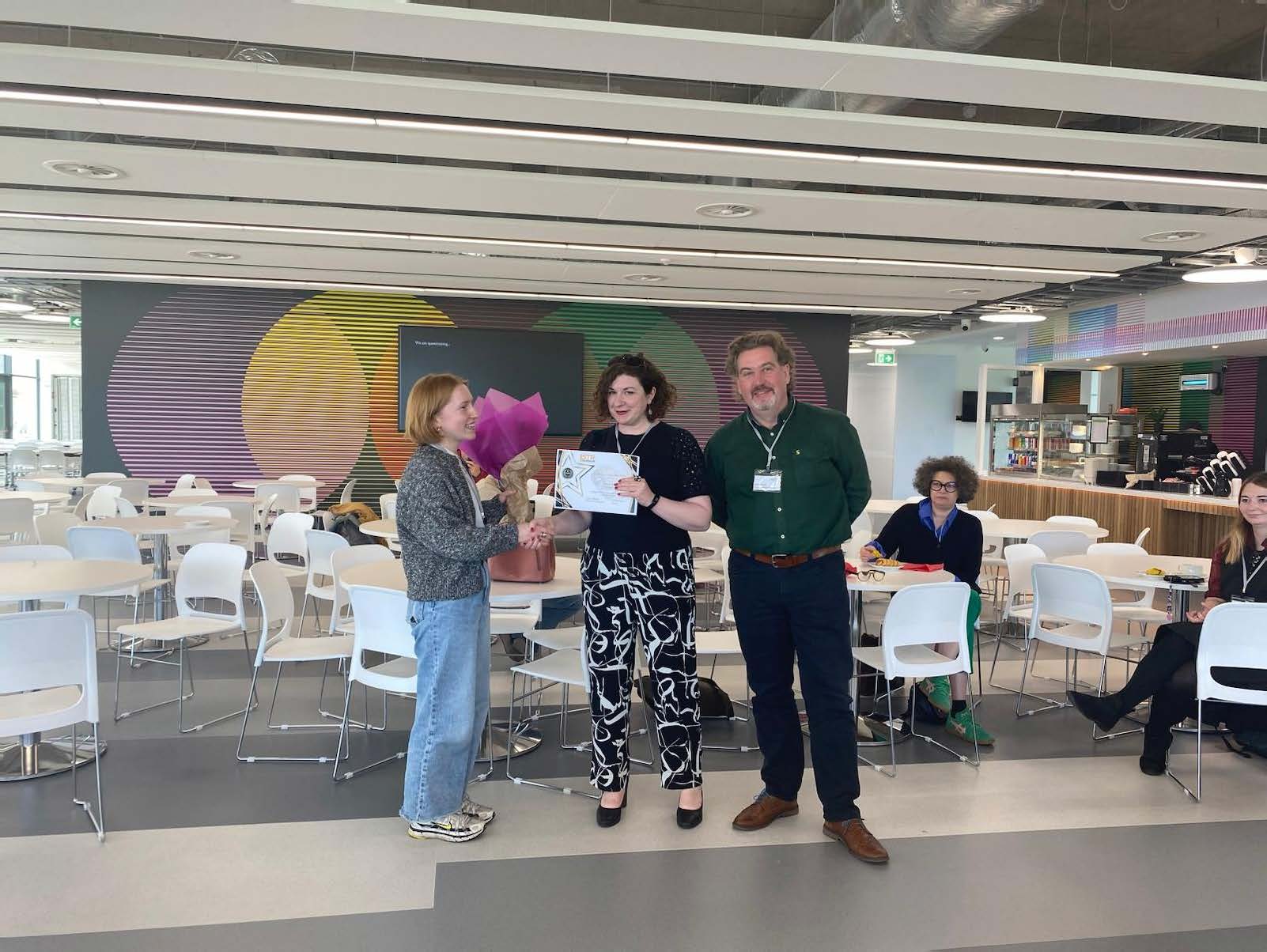
On show throughout the conference was the installation ‘New Moon’, developed through art workshops at Ukrainian refugee camps by Mykyta Kushch-Shevalov, Yaroslava Kozulina, and Igor Kapov in collaboration with Justyna Doherty. Tents and clothing served as reminders of everyday urban life in Kyiv, interwoven with photographs from the refugee camp. Such items acted as poignant reminders that questions of empire and conflict are still present now more than ever. The accompanying films posed questions about the ontology
and temporality of being a refugee, asking us to reflect on such questions as: “Is a refugee just someone who lives in a camp, waiting? Or is it someone who carries the memory of their home through unfamiliar streets? Someone who didn’t choose to leave, but had to. Someone who now must rebuild everything from fragments.”
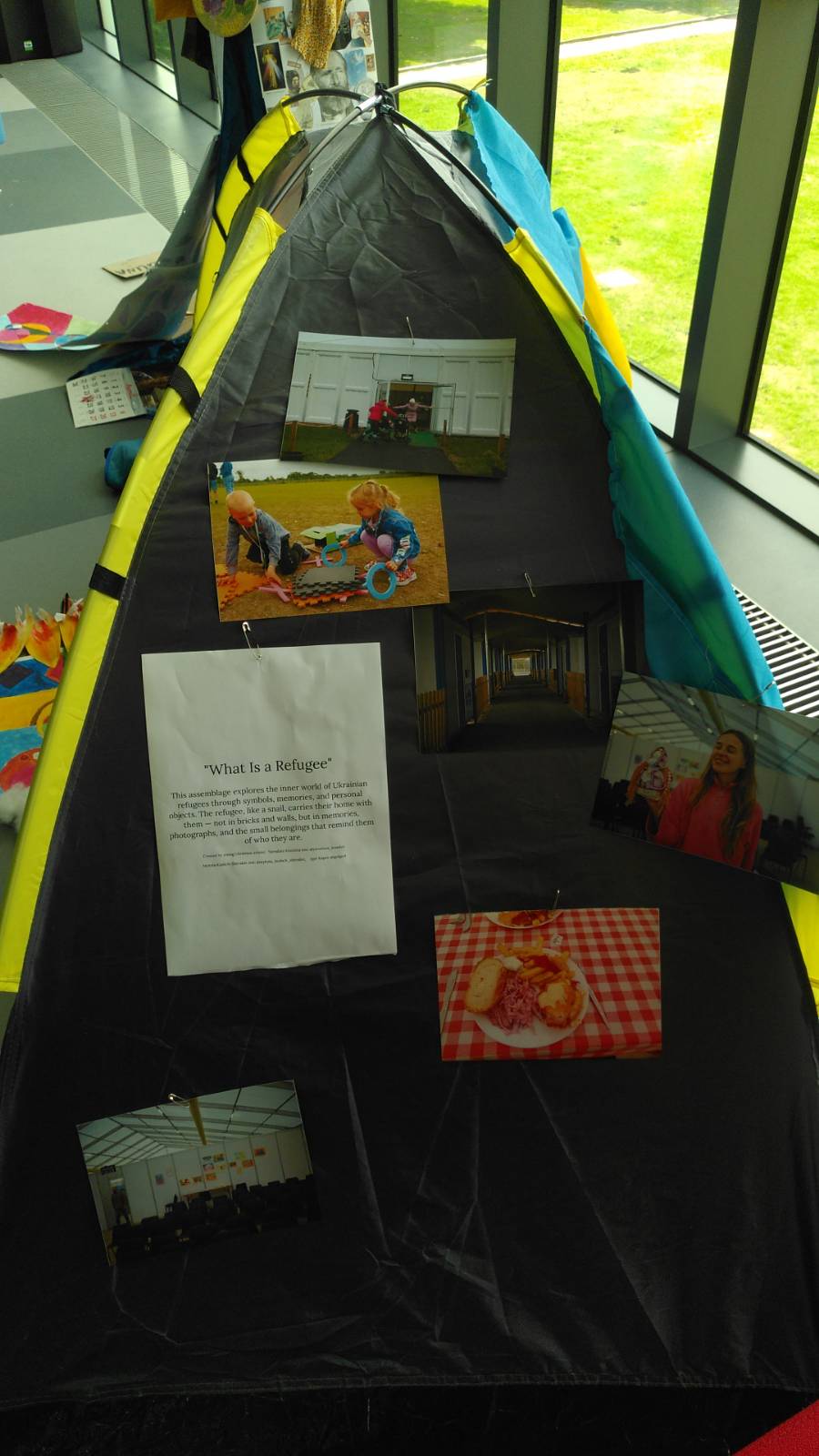
The ISTR Committee wishes to thank all who contributed to The End(s) of Empire: Place, Politics, Performance – including the organisers Sarah Hoover, Siobhán O’Gorman and Kevin Wallace (IADT), as well as the Creative Futures Academy and Film EU for supporting the event.
A special thanks to CFA Project Coordinator Elena Somoza for keeping the show on the road! We thank our keynotes, Elaine and Siân, and all who showed work, chaired panels, launched books, presented or received awards; thank you to IADT’s caterers, estates team, technicians, caretakers, administrators, and academic staff for a seamless and enriching couple of days. Finally, thanks to all our attendees and delegates for helping to make this conference a very special!